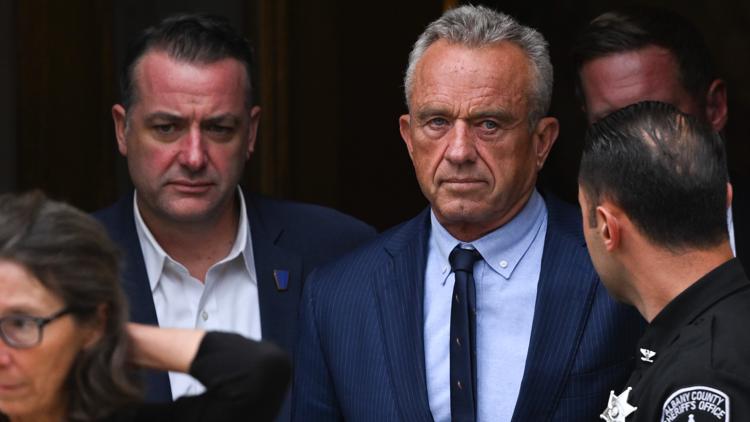The Battle to Keep RFK Jr.’s Name on the Ballot in New York

A recent ruling has caused an upheaval in the independent presidential campaign of Robert F. Kennedy Jr., as a judge in New York declared that his name should not appear on the state’s ballot. The reason behind this decision is a controversy over his claimed residency, with evidence showing that while he stated New York as his residence, he was actually living in California.
The scion of the famous Kennedy political dynasty has vowed to appeal this decision, denouncing it as partisan. If upheld, not only will Kennedy be excluded from the New York ballot, but this could also trigger challenges in other states where he used an address in New York City’s suburbs for signature collection.
In response to the ruling, Kennedy accused Democrats of undermining democracy and trying to limit voter choices. His campaign plans to push back against this decision, confident of a favorable outcome in the appeals process.
Meanwhile, a North Carolina judge ruled in favor of Kennedy, allowing him to remain on the ballot in that state despite a separate challenge. However, in New York, Judge Christina Ryba’s decision highlighted the discrepancies in Kennedy’s residency claims, casting doubts on the legitimacy of his New York address.
Ryba’s ruling pointed out that Kennedy’s claimed bedroom in New York was a “sham” address used for the purpose of voter registration and furthering his political ambitions. The judge emphasized that the evidence presented during the trial exposed a pattern of borrowing addresses to maintain voter registration in New York while actually residing in California with his wife, Cheryl Hines.
The verdict was supported by Clear Choice Action, a Democratic PAC that initiated the legal challenge, accusing Kennedy of deceiving election officials and betraying voters’ trust. The organization stated that Kennedy’s attempts to overturn the ruling would fail, emphasizing the importance of accountability in such cases.
Throughout the trial, Kennedy defended his ties to New York, underscoring his intention to return permanently to the state. He detailed his current living arrangements, including renting a room in Katonah, north of Manhattan, although his campaign travel keeps him away most of the time.
Despite his arguments, the judge found Kennedy’s claims unconvincing, pointing towards evidence that contradicted his statements. The controversy surrounding Kennedy’s residency status has sparked concerns among both Democratic and Republican strategists, as his name recognition and loyal base could potentially influence the election outcome.
As Kennedy’s campaign faces challenges and lawsuits in various states, the battle to keep his name on the ballot has intensified. With implications beyond New York, the outcome of this legal tussle could have a significant impact on the upcoming presidential election.
It remains to be seen how Kennedy’s campaign will navigate these obstacles and secure his place on the ballot in all the states where he aims to compete.

